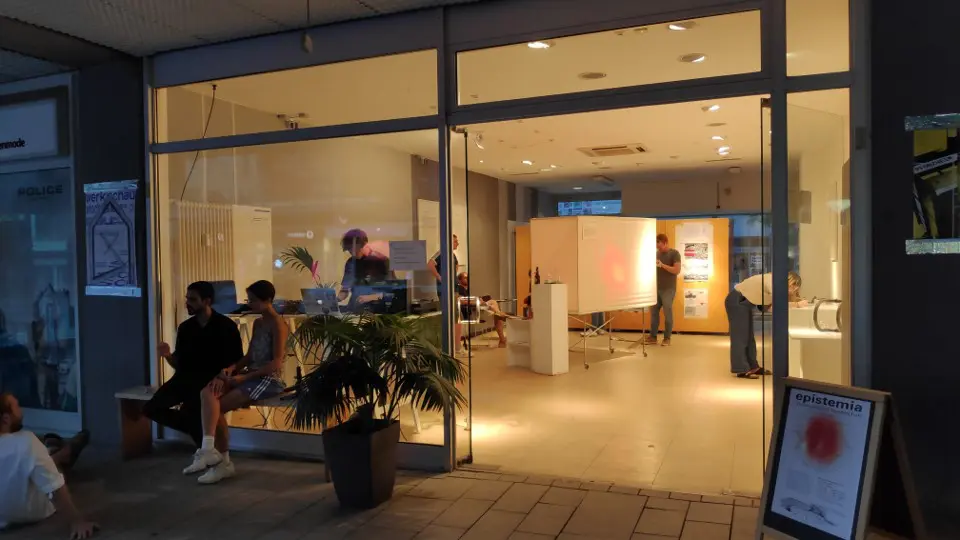Epistemia was a temporary three-day socio-economic utopian space created together with Theo Gomes and Joshua Burghardt in which free thought, participation, and discourse were the three pillars of this utopia.
In the sense of radical constructivism, each person has his or her own very personal reality, constructed by him or herself. In social discourse, these realities meet and create together an intersubjective reality, which defines social norms, laws, values, truths and social interfaces. These interfaces determine at the same time which realities - which individuals - are connectable to this intersubjective reality, the discourse.
 In order to demonstrate this process to the individuals and to
raise their awareness of it, an experimental set-up was
developed. People were guided to explore their own reality and
capture it with the help of semantic maps. These semantic maps,
which represented parts of their reality, could then interact
with other realities on the »discubus«, a cube symbolizing the
medium of discourse. As a result, an increasingly complex
discourse gradually unfolded, creating both opportunities and
restrictions as well as its own specific rules.
In order to demonstrate this process to the individuals and to
raise their awareness of it, an experimental set-up was
developed. People were guided to explore their own reality and
capture it with the help of semantic maps. These semantic maps,
which represented parts of their reality, could then interact
with other realities on the »discubus«, a cube symbolizing the
medium of discourse. As a result, an increasingly complex
discourse gradually unfolded, creating both opportunities and
restrictions as well as its own specific rules.
In addition to this, there were also other participatory experiments and contents on the topics of the economy of the common good, radical constructivism, discourse, and public space in the project space. For each interaction in Epistemia, people could collect points, which were then converted into charitable donations.